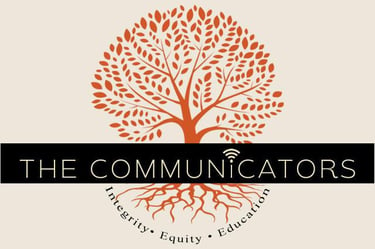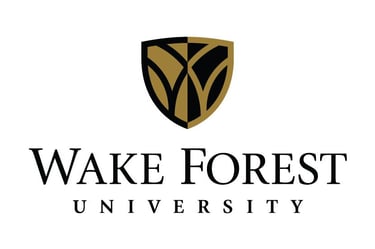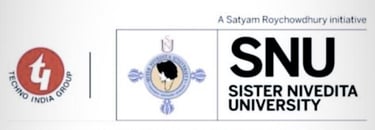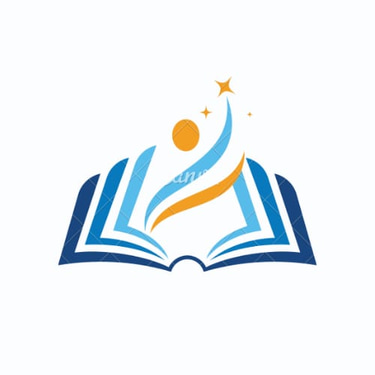We are Inviting Submission for December Issue (2025), Volume-2, Issue-2 On Indian Knowledge System: Prospects and Possibilities in Communication Research.
The Last Date of Submission is November 10, 2025
The Communicator
ISSN: Forthcoming






Call for Papers for Volume 2 Issue 1
The journal uses an open call based on the following schedule of publication :
The accepted articles for Volume 2, Issue 1 will start to appear from January 5, 2025, and all accepted articles will be published by June 29, 2025.
Call for Papers
Synesthetic Environmentalism : Multisensory and Multispecies Storytelling in the Digital Age
In an era of escalating ecological crises, how can storytelling evolve beyond traditional text and visuals to embrace a multisensory, multispecies dialogue? This call for papers seeks to reimagine environmental communication as an immersive, inclusive, and interspecies narrative shaped by emerging technologies, Indigenous cosmologies, and artistic practices.
We invite scholars, artists, and practitioners to explore the intersections of digital media, ecological awareness, and sensory storytelling in ways that challenge anthropocentric perspectives and foster new ways of engaging with the environment.
List of Tentative Topics:
Submissions may include, but are not limited to:
Multisensory Storytelling & Digital Media: How technologies like VR, AR, AI, and haptic interfaces expand ecological narratives.
Indigenous Cosmologies & Environmental Narratives: Traditional ecological knowledge as a framework for multispecies storytelling.
Interspecies Storytelling: Collaborative narratives that include non-human perspectives, from animal communication to plant intelligence.
Synesthetic Aesthetics & Environmental Art: How multisensory art forms reshape perceptions of ecological crises and resilience.
Digital Activism & Environmental Justice: The role of digital storytelling in amplifying marginalized voices in environmental discourse.
Authors are encouraged to submit an abstract; a submission guideline will then be sent to the author.
This is a double-blind peer-reviewed publication of The Communicators. Essays should be submitted in MS Word, be no more than 9,000 words long (inclusive of abstract, references, and tables), and should adhere to the most recent edition of the APA style.
Manuscripts submitted must not be under review elsewhere or have appeared in any other published forms.
Call For Papers for Volume 1 Issue 2
The journal uses an open call based on the following schedule of publication:
The accepted articles for Volume 1, Issue 2 will start to appear from July 5, 2024, and all accepted articles will be published by December 30, 2024.
Call for Papers
Media Narrative in South Asia
Trend of media narrative is regarded as the barometer of a democracy’s sustainability. They shape the debates and discussion about cultural, political, and economic identities in a society. Therefore, the existence of an inclusive media narrative is essential for the coexistence of diverse opinions and ideas, and builds tolerance for those opinions and ideas. Increasing concentration of media ownership, along with the new technological development, has emerged as a grave threat to a democratic media space across the world, but more specifically South Asia. In this call, the Executive Editors welcome submissions that address the changing media narrative in South Asia. Given the themes of the issue, the Executive Editors have invited two Guest Editors as stewards of this issue.
South Asia today is the site for numerous struggles and debates in the world, including ethnic separatist movements in India and Sri Lanka, restoration of democracy in Nepal and Maldives, inquiries concerning the role of military in Pakistan, simultaneous emergence of terrorism and developmental issues in Afghanistan and Bangladesh, and conversations about the Gross National Happiness of Bhutan. In such diverse and mercurial contexts, it is important that media operates in the domain of providing objective information and news to sustain a democratic media narrative. This requires that the political apparatuses and the media institutions allow space for content gatherers, writers, and editors to work without intimidation and interference.
Information is essential for people to effectively respond to the opportunities and challenges of social, economic, and technological changes; simultaneously, media institutions are expected to satisfy the demand for information. The aim of this edition, therefore, is to explore the interrelationship between cultures and media systems in ushering development in the South Asian Region. The intention is to present evidence-based scholarship that addresses these vital issues.
List of Tentative Topics Include (but are not limited to):
Media narratives in South Asian journalism
Scope and application of indigenous communication in South Asian region
Popular culture and media narratives in South Asia
Vulnerability in digital spaces: Online platforms and social media networks
Intersectionality of class and caste: Analysis of the media narratives
Gender and media narrative: Issues in South Asia
Issues of rural communication in South Asia
Communication in public health and hygiene: Towards an alternative narrative in South Asian countries
Media narrative and social media activism in South Asia
Social movement and social media: South Asian experiences
Authors are encouraged to submit an abstract; a submission guideline will then be sent to the author.
This is a double-blind peer-reviewed publication of The Communicators. Essays should be submitted in MS Word, be no more than 9,000 words long (inclusive of abstract, references, and tables), and should adhere to the most recent edition of the APA style.
Manuscripts submitted must not be under review elsewhere or have appeared in any other published forms.
Call For Papers for Volume 1 Issue 1
The journal uses an open call based on the following schedule of publication:
The accepted articles for Volume 1, Issue 1 will start to appear from January 5, 2024, and all accepted articles will be published by June 29, 2024.
Call for Papers
The Human Dimension of Applied AI: Transforming Practice, Empowering People, and Navigating Complexity
As we stand at the cusp of an artificial intelligence (AI) revolution, it is imperative to acknowledge that AI's true potential lies not in its technological prowess but in its ability to augment human capabilities and transform societal practices. This volume explores the human dimension of applied AI, delving into the intricate relationships between technology, people, and practice. We invite contributions that examine how AI is redefining professional practices, empowering individuals, and navigating the complexities of human-centered systems.
This volume aims to provide a platform for scholars, practitioners, and policymakers to share their insights on the human-centric applications of AI. We welcome papers that investigate the impact of AI on human behavior, decision-making, and relationships, as well as those that explore the ethical, social, and cultural implications of AI adoption. By focusing on the human dimension of applied AI, we hope to foster a deeper understanding of how technology can be harnessed to improve human lives, enhance organizational performance, and promote societal well-being. We look forward to receiving submissions that offer novel perspectives, empirical insights, and practical wisdom on this critical topic.
List of Tentative Topics Include (but are not limited to):
Reimagining Workflows: How AI is Redefining Professional Practices
The Ethics of AI: Balancing Human Values and Technological Advancements
Empowering Individuals: AI-Driven Tools for Personalized Learning and Development
Navigating Complexity: AI-Assisted Decision-Making in Complex Systems
The Future of Work: How AI is Changing the Nature of Employment and Skills
Human-AI Collaboration: Designing Effective Partnerships for Innovation
The Dark Side of AI: Addressing Bias, Inequality, and Social Injustice
AI for Social Good: Harnessing Technology for Humanitarian Causes
The Human Touch: AI's Role in Enhancing Human Connection and Empathy
Governance and Regulation: Ensuring Accountability and Transparency in AI Development
As indicated, manuscripts would be accepted in an ongoing way to retain the publication window of Volume 1 Issue 1.
Authors are encouraged to submit an abstract; a submission guideline will then be sent to the author.
This is a double-blind peer-reviewed publication of The Communicators. Essays should be submitted in MS Word, be no more than 9,000 words long (inclusive of abstract, references, and tables), and should adhere to the most recent edition of the APA style.
Manuscripts submitted must not be under review elsewhere or have appeared in any other published forms.
Call For Papers for Volume 2 Issue 2
The journal uses an open call based on the following schedule of publication:
The accepted articles for Volume 2, Issue 2 will start to appear from July 5, 2025, and all accepted articles will be published by December 30, 2025.
Call for Papers
Indian Knowledge System: Prospects and Possibilities in Communication Research.
As we navigate the complexities of global communication, it's essential to tap into indigenous knowledge systems that offer unique perspectives on human interaction and cultural expression. The Indian Knowledge System (IKS) is a rich repository of ancient philosophies, practices, and wisdom that can inform and enrich communication research.
This journal aims to explore the prospects and possibilities of integrating IKS into communication studies. By examining key concepts such as rasa theory (aesthetics and emotional resonance) and lokadharmi (folk traditions and cultural expression), we can develop more nuanced frameworks for understanding communication dynamics in diverse cultural contexts.
The objectives of this study are:
- To examine the relevance of IKS in contemporary communication research
- To identify potential applications of IKS in areas such as media studies, public relations, and development communication
- To develop culturally sensitive research methodologies that incorporate indigenous knowledge systems
By bridging the gap between traditional knowledge and modern communication research, this study seeks to contribute to a more inclusive and diverse understanding of human communication, ultimately enriching the field of communication studies.
List of Tentative Topics Include (but are not limited to):
Traditional Indian Communication Models
Ancient Indian Rhetoric and Persuasion
Folk Media and Indigenous Communication Practices
Communication Ethics in Indian Philosophy
Digital Transformation and Indian Knowledge Systems
Intercultural Communication from an Indian Perspective
Communication in Indian Spiritual and Philosophical Traditions
Media Representation of Indian Culture and Society
Challenges and Opportunities for Indian Communication Research
The Role of Language in Indian Communication
Towards developing a model for IKS
Authors are encouraged to submit an abstract; a submission guideline will then be sent to the author.
This is a double-blind peer-reviewed publication of The Communicators. Essays should be submitted in MS Word, be no more than 9,000 words long (inclusive of abstract, references, and tables), and should adhere to the most recent edition of the APA style.
Manuscripts submitted must not be under review elsewhere or have appeared in any other published forms.
